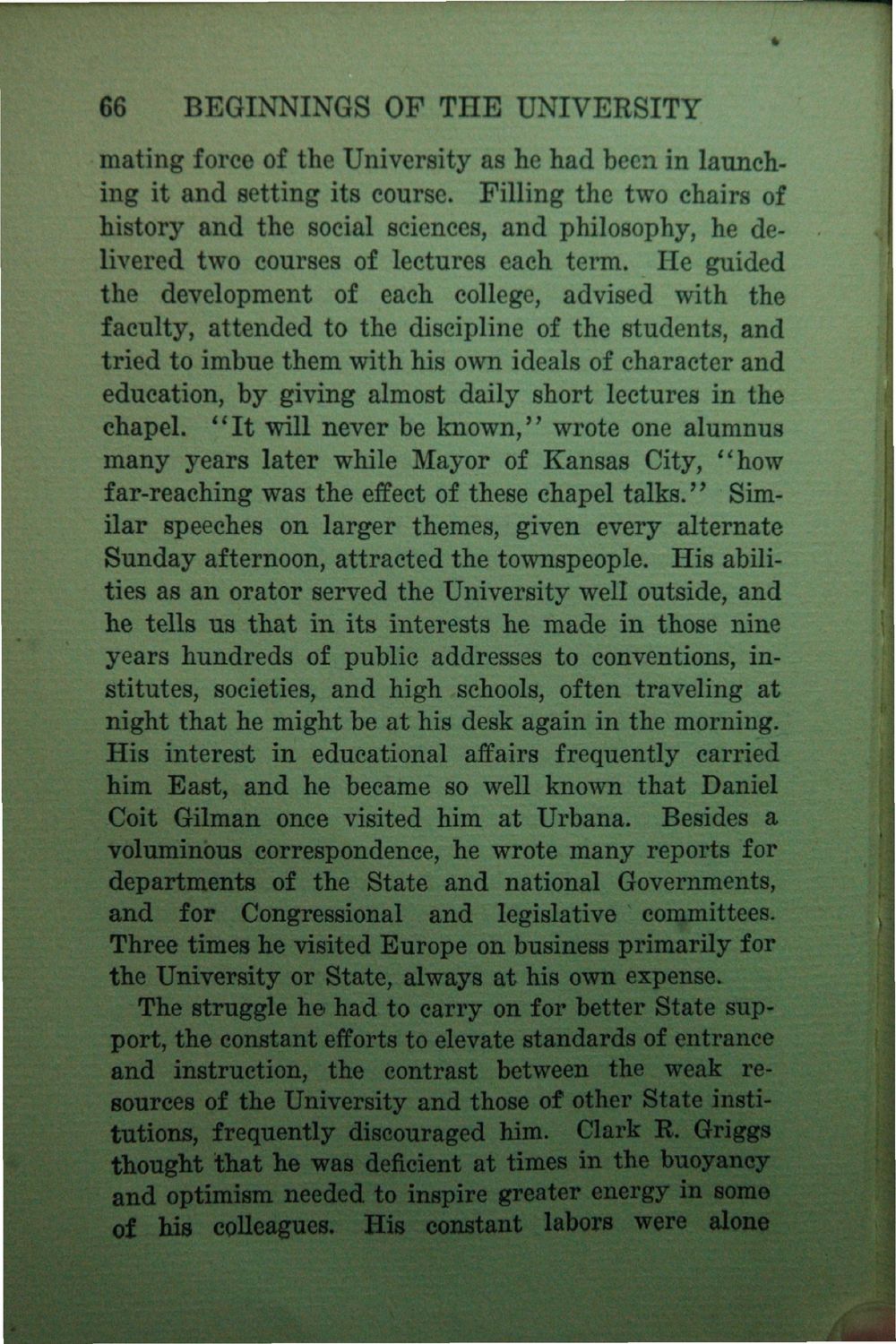| |
| |
Caption: Book - History of the University (Nevins)
This is a reduced-resolution page image for fast online browsing.

EXTRACTED TEXT FROM PAGE:
1 # 66 BEGINNINGS OF THE UNIVERSITY mating force of the University as he had been in launching it and setting its course. Filling the two chairs of history and the social sciences, and philosophy, he delivered two courses of lectures each term.J He guided the development of each college, advised with the faculty, attended to the discipline of the students, and tried to imbue them with his own ideals of character and education, by giving almost daily short lectures in the chapel. " I t will never be known," wrote one alumnus many years later while Mayor of Kansas City, "how far-reaching was the effect of these chapel talks." Similar speeches on larger themes, given every alternate Sunday afternoon, attracted the townspeople. His abilities as an orator served the University well outside, and he tells us that in its interests he made in those nine years hundreds of public addresses to conventions, institutes, societies, and high schools, often traveling at night that he might be at his desk again in the morning. His interest in educational affairs frequently carried him East, and he became so well known that Daniel Coit Gilman once visited him at Urbana. Besides a voluminous correspondence, he wrote many reports for departments of the State and national Governments, and for Congressional and legislative committees. Three times he visited Europe on business primarily for the University or State, always at his own expense. The struggle he had to carry on for better State support, the constant efforts to elevate standards of entrance and instruction, the contrast between the weak resources of the University and those of other State institutions, frequently discouraged him. Clark R. Griggs thought that he was deficient at times in the buoyancy and optimism needed to inspire greater energy in some of his colleagues. His constant labors were alone
| |